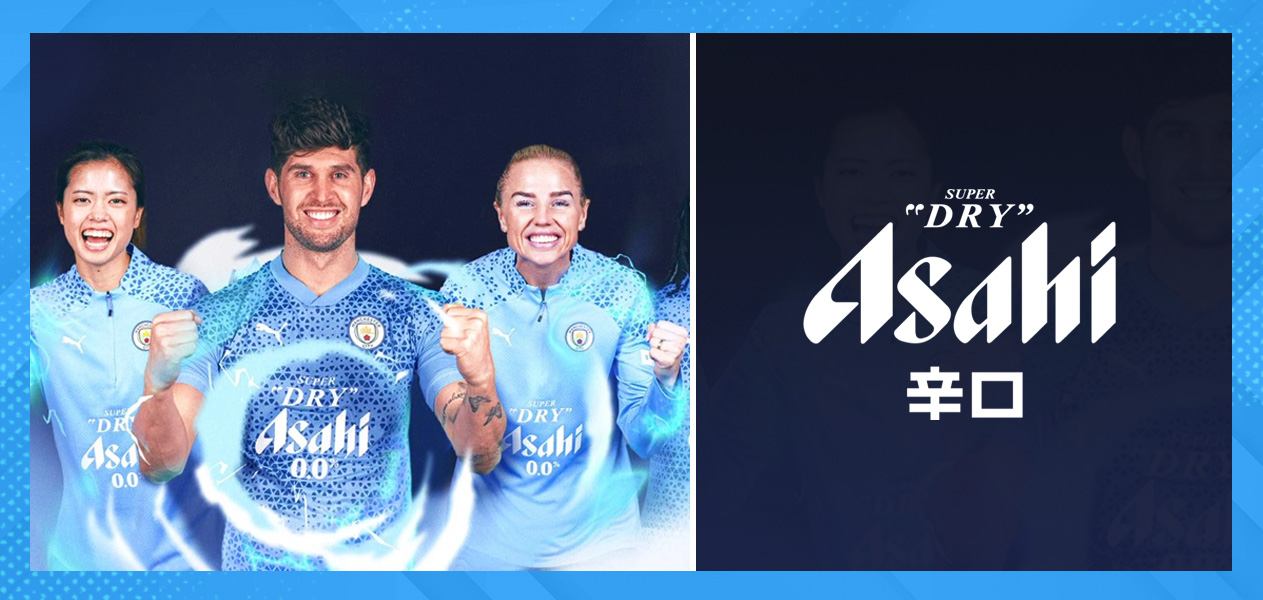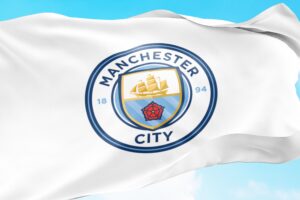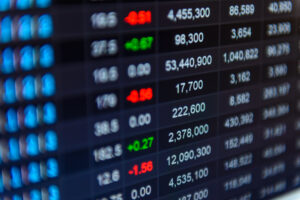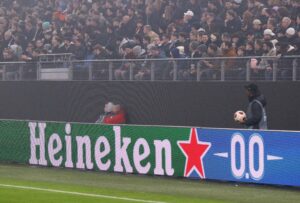How alcohol-free beer sponsorships are boosting brand relevance

This week, treble-winners Manchester City expanded their partnership with Asahi Super Dry, with the non-alcoholic beer brand becoming the club’s official training kit partner. It follows a wider trend of brands and events embracing non-alcoholic sponsorship. In this article we look at how this growing approach is helping speak to audiences in a culturally relevant way without shedding brands’ core principles.
Why do non-alcoholic sponsorships make sense and which brands are leading the way?
With the prominence of alcohol within sports and its historic association with the fan experience, there lies the potential for brands to grow within the same customer base. In pubs, sales of low and non-alcoholic beer have jumped by 23% during the past year compared with the previous 12 months, and have more than doubled since 2019, just prior to the pandemic. There is a clear need to publicly invest in those consumers. These sponsorships will prompt positive association for consumers of its regular product and keep the brands relevant for those making the switch to less or no alcohol.
Asahi
Taking the front of Manchester City’s training kit for the 23/24 season, Asahi Super Dry have upgraded their partnership which began in 2022. The renewed partnership was announced yesterday with an augmented reality video highlighting the importance of training to the players. The well-placed sponsorship will immediately associate the product with training and fitness, thereby emphasising a health-conscious wing to its brand. In keeping with cultural relevance, with Man City’s financial ties to the Middle East, an alcohol-alternative product may play well in expanding support in countries where it is less consumed.
To learn about what happens when brands do alienate audiences, read here.
Guinness
At the Guinness Six Nations in March, the title sponsor centred their entire campaign on their 0.0% product. The alcohol-free drink was launched in large part as a response to the pandemic, a period which saw a rise in alcohol abuse. Incidentally, the activation was in response to an increase in consumption of its regular product. At the event, pitch side billboards featured the phrase ‘not drinking?’ and over 50,000 free pints of 0.0% were handed out of the final day weekend. The product has opened the experience of watching Rugby at the pub or elsewhere to those excluded by the sport’s historic drinking culture. Moreover, it has shown Guinness as a brand capable of responding to cultural change.
Their non-alcoholic sponsorship activations have been enormously successful in promoting the brand and garnering an appetite for the 0.0%. Two days ago, it was announced that Guinness will almost triple production of its zero-alcohol brand. Owners Diageo has invested 25million euro in a new facility at its St James's Gate brewery in Dublin to meet a surge in demand for alcohol-free stout in the domestic and global markets.
Seedlip and Heineken
When Formula E’s Mercedes EQ partnered with non-alcoholic brand, Seedlip, in 2021 they felt much the same: “We have both set ourselves the objective of driving positive change on our planet.” In May of this year, Heineken furthered their own expansive, non-alcoholic sponsorship within Formula One. The Dutch brewery began an endorsement deal with Red Bull Racing driver Max Verstappen through the ‘Player 0.0’ initiative, a gaming activation designed to create a new virtual racing experience for fans, all with the alcohol-free product in mind.
Heineken has also been a UEFA partner in one way or another since 1994. Since 2020, it has put down 10m euros a year to associate its non-alcoholic Heineken 0.0 alternative with European football. According to ‘The Drum,’ its bets are now hedged on the growth of the 0% ABV sector. Hans Erik Tuijt, Heineken Global Sponsorship Director, said “We feel it’s crucial to give consumers a choice.” In understanding and not alienating their audience, Heineken, also sponsors of the Europa League, have a higher-quality commercial offering.
Conclusion
Asahi are the latest in a long line of brands investing through sponsorship in their own non-alcoholic products. For rights holders meanwhile, non-alcoholic products are an attractive proposal. At this year’s Wimbledon, Stella Artois Alcohol Free will be available for the first time as the brewery moves into its position as Official Beer Partner. It does so without taking centre stage (or court) in its branding - a position still held by its original lager. With an established beer culture already present at Wimbledon, would putting more into advertising its non-alcoholic products forge a new path without affecting that core customer base? We think so - particularly given Wimbledon’s growing focus on a younger audience.
To learn about one way Wimbledon is looking to speak to younger audiences, click here.









